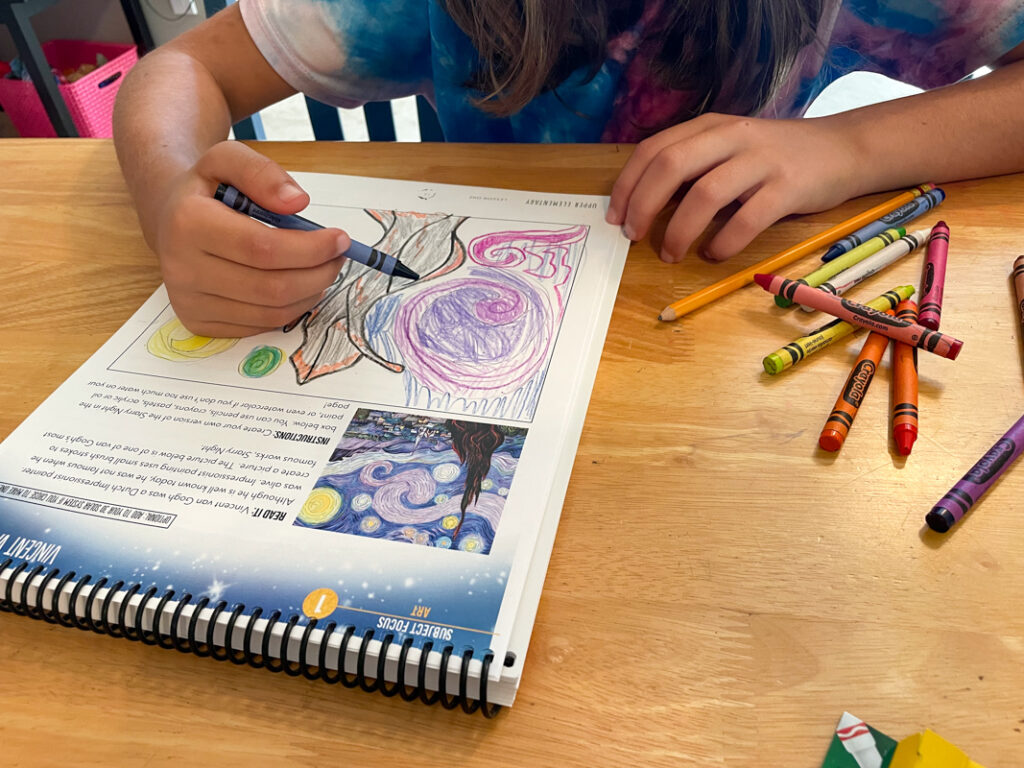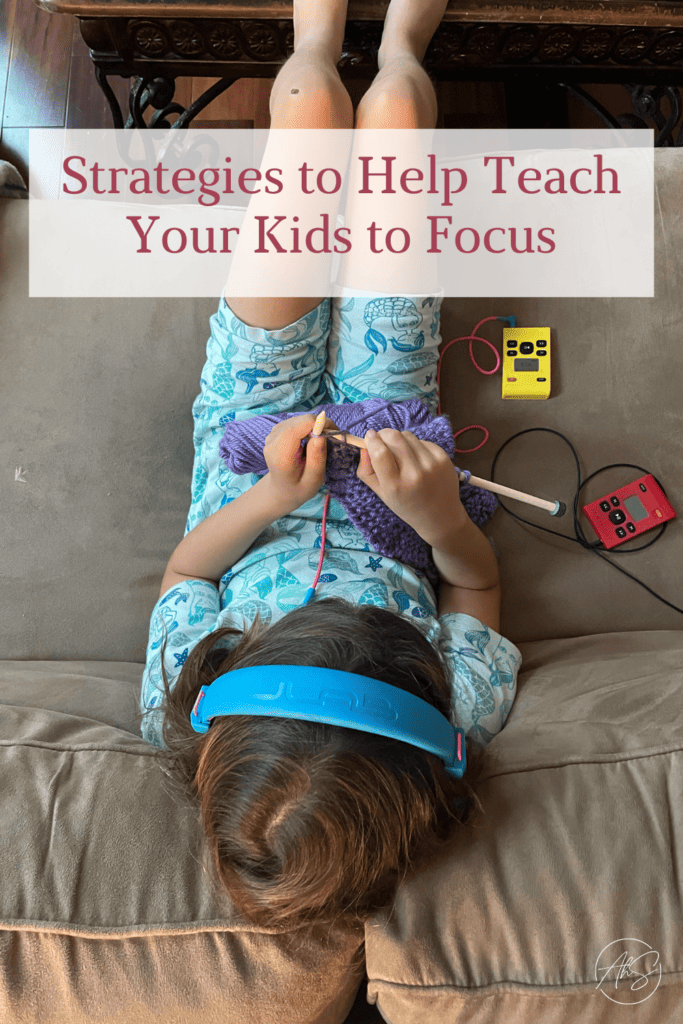How To Help Kids Focus

[ad_1]
Every parent knows it; kids weren’t meant to sit still! Moving, playing, and learning take up so much of their short attention spans. In order to learn, our kids need to first develop skills that will help them focus. Getting our kids to concentrate may seem like an uphill battle, but I promise you, it’s absolutely doable!
I’ve rounded up some of my favorite practical and effective strategies that have been helpful in my parenting journey that you can use to help your kids eliminate distractions and develop strong concentration muscles for improved focus.
How to Help Kids Focus
Teach Your Child to Break Down Big Tasks
Nothing is more overwhelming than looking at a massive goal and wondering how on earth you’re going to get it done. Kids are no different. When facing a daunting task, they often have trouble staying focused and you’ll notice they’re having difficulties paying attention to the task at hand.
To be honest, are we all that different as adults? 😉 If the end of the task seems too far away and the goal you’ve set for them appears unmanageable, their attention will wander as an escape mechanism.
Instead, teach your child to break large tasks into smaller, more manageable ones. The clear end goal for their mini-task improves their ability to focus because you’re increasing their confidence that they can see the task through to the end, while decreasing the time they have to concentrate. The old eat the elephant analogy; one small bite at a time.
Encourage Your Kids to Take Breaks
I know that when I work for long periods my ability to focus becomes impaired and my mind wanders to create some sort of break from what I’m working on. With kids, studies have shown that breaks are an essential part of learning. In fact, your child learns better and their concentration skills improve when their minds have some space to breathe.
Here are some tips for working breaks into your child’s learning schedule:
- For elementary school students with shorter attention spans, for every 10 to 15 minutes of focused work, they should get a 3 to 5-minute break.
- For high-school students with longer attention spans, for every 20 to 25 minutes of focused work, they should get a 3 to 5-minute break.
- These breaks can consist of physical activity (we love walks down the street, but on rainy days the rebounder works wonders), fun creative brain breaks (riddles or jokes), or even taking some deep breaths to help calm and refocus their minds.
Embrace Games and Play
You can improve your child’s focus with the help of games. After all, studies have shown that kids learn best through play. You can do this in so many ways, but here are a few of my favorites:
- Start playing board games with your kids! Board games are a fun way to help your child focus and concentrate. They have to pay attention to things like the rules and whose turn it is which helps improve their attention and focusing skills!
- Make a game out of focus. The truth about homeschooling is that making learning fun is half the battle. Give them a ‘focus goal’, and work with them to come up with a fun reward that they can earn. For example, you could ask them to focus on reading a book for ten minutes, and if they do that, you’ll go for a nature walk outside or play their favorite game together.
Limit Screen Time
The screens of smartphones, tablets, computers, and TVs are filled with distractions while also being highly stimulating. Sitting down to work on printing their letters doesn’t seem nearly as exciting to your kids as playing the latest video game. In fact, studies have shown that increased screen time has been linked to shorter attention spans in children as well as increased trouble concentrating.
One of the best things you can do as a parent if you notice your children struggle with focusing on the task at hand is to decrease the amount of screen time they’re getting. The data tells us that:
- Young children aged 2 to 5 should be limited to under an hour of screen time each day.
- Children over 5 should have less than 2 hours of screen time each day.
- Share screen time with your kids using learning programs you can watch with them.
- Encourage non-screen time activities for your kids to relax with, like art and audiobooks.
Establish a Routine For Your Kids
Routines are great for focus and concentration. When your child knows the times they’re expected to be focused and which times they’re allowed to daydream, play, and relax, it makes it easier for them to concentrate. A routine allows them to slip into “learning mode” a lot easier and it also increases attention spans because they know that a different activity is scheduled next. This has been a gamechanger for us this year, as we have stuck to our routine of math at 9:00 and language arts at 10:00. It’s really helped the girls focus and know what to expect.
- Routines make it easier to schedule in some other great focus tips like adding breaks.
- Having a schedule allows you to pay attention to your kids’ behaviors so you know when they struggle to focus.
- You can move around parts of the schedule once you have the basic pieces in play so it fit your child best.
Set Up A Dedicated Work Space
You can’t expect your child to focus when they’re surrounded by their toys or other distractions. Create a zone in the home that your child uses when they need to direct their attention towards a task. Some ideas for creating a focus zone include:
- Eliminate distractions by placing their focus zone in a calm, quiet area of the house.
- Keep the area tidy and free of distractions.
- Make sure your child’s focus zone is well-lit so they can see what they’re doing.
- Have some fun creating a space that’s personal to your child by using their favorite chair, or painting the area their favorite color (but remember to keep it distraction-free).
Work With Your Child
Every child is different. Some children focus better in the mornings, while others have better concentration in the afternoon. Some kids need a snack before they can settle down to learn, while others might need more frequent breaks. Some kids are motivated by play, while others prefer some snuggles and quiet reading.
Knowing your own child’s quirks and habits allows you to zone in on what types of focus activities would work best for them. This will lead to a better learning environment for both of you, as well as long-term habits that will build up the focus muscles in your child.


[ad_2]





